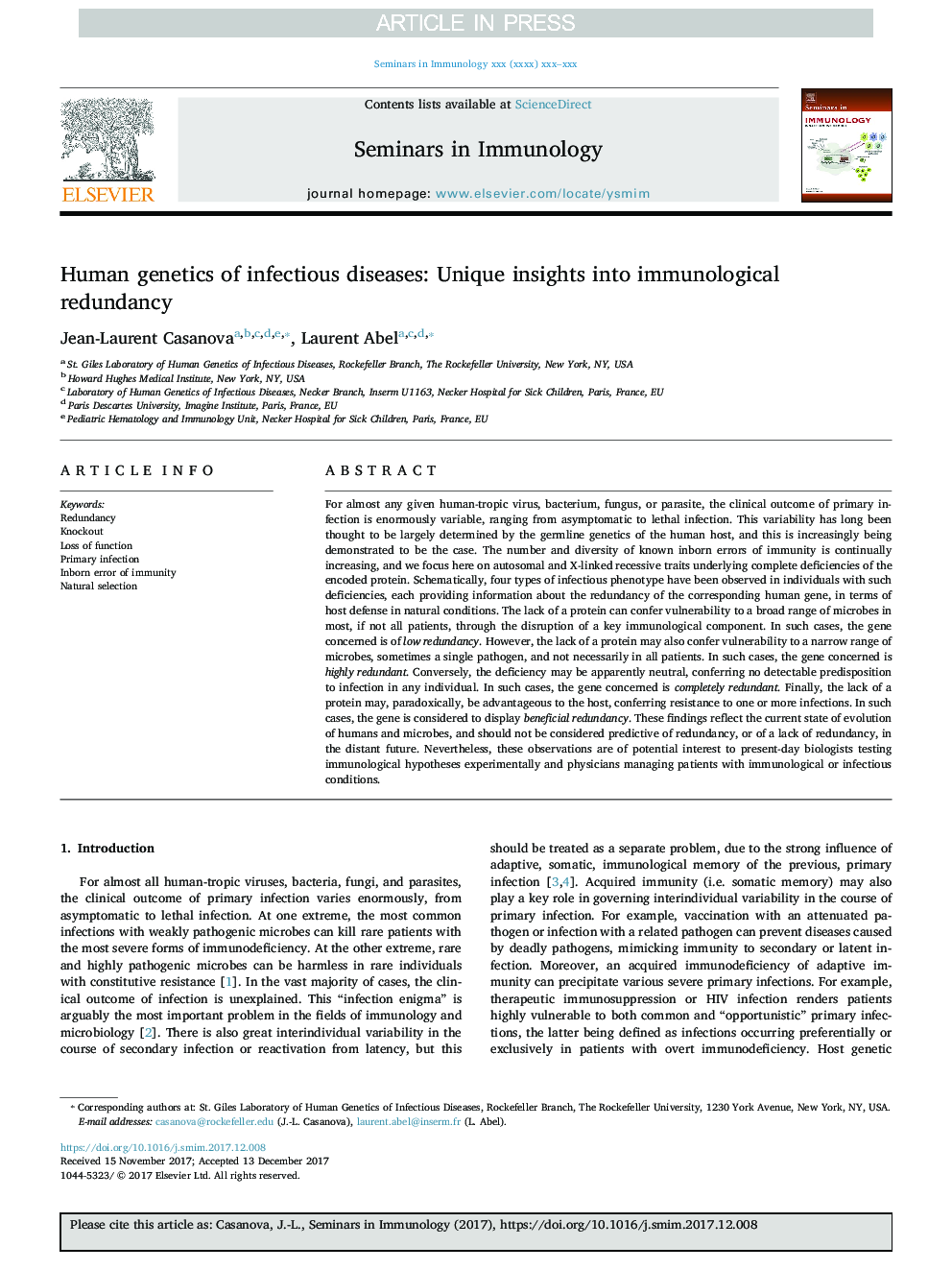| کد مقاله | کد نشریه | سال انتشار | مقاله انگلیسی | نسخه تمام متن |
|---|---|---|---|---|
| 8743682 | 1592648 | 2018 | 12 صفحه PDF | دانلود رایگان |
عنوان انگلیسی مقاله ISI
Human genetics of infectious diseases: Unique insights into immunological redundancy
ترجمه فارسی عنوان
ژنتیک انسانی از بیماری های عفونی: بینش منحصر به فردی به اضافه کاری ایمنولوژیک
دانلود مقاله + سفارش ترجمه
دانلود مقاله ISI انگلیسی
رایگان برای ایرانیان
کلمات کلیدی
افزونگی، ناک اوت، از دست دادن عملکرد، عفونت اولیه، خطای مفرط ایمنی، انتخاب طبیعی،
موضوعات مرتبط
علوم زیستی و بیوفناوری
ایمنی شناسی و میکروب شناسی
ایمونولوژی
چکیده انگلیسی
For almost any given human-tropic virus, bacterium, fungus, or parasite, the clinical outcome of primary infection is enormously variable, ranging from asymptomatic to lethal infection. This variability has long been thought to be largely determined by the germline genetics of the human host, and this is increasingly being demonstrated to be the case. The number and diversity of known inborn errors of immunity is continually increasing, and we focus here on autosomal and X-linked recessive traits underlying complete deficiencies of the encoded protein. Schematically, four types of infectious phenotype have been observed in individuals with such deficiencies, each providing information about the redundancy of the corresponding human gene, in terms of host defense in natural conditions. The lack of a protein can confer vulnerability to a broad range of microbes in most, if not all patients, through the disruption of a key immunological component. In such cases, the gene concerned is of low redundancy. However, the lack of a protein may also confer vulnerability to a narrow range of microbes, sometimes a single pathogen, and not necessarily in all patients. In such cases, the gene concerned is highly redundant. Conversely, the deficiency may be apparently neutral, conferring no detectable predisposition to infection in any individual. In such cases, the gene concerned is completely redundant. Finally, the lack of a protein may, paradoxically, be advantageous to the host, conferring resistance to one or more infections. In such cases, the gene is considered to display beneficial redundancy. These findings reflect the current state of evolution of humans and microbes, and should not be considered predictive of redundancy, or of a lack of redundancy, in the distant future. Nevertheless, these observations are of potential interest to present-day biologists testing immunological hypotheses experimentally and physicians managing patients with immunological or infectious conditions.
ناشر
Database: Elsevier - ScienceDirect (ساینس دایرکت)
Journal: Seminars in Immunology - Volume 36, April 2018, Pages 1-12
Journal: Seminars in Immunology - Volume 36, April 2018, Pages 1-12
نویسندگان
Jean-Laurent Casanova, Laurent Abel,
